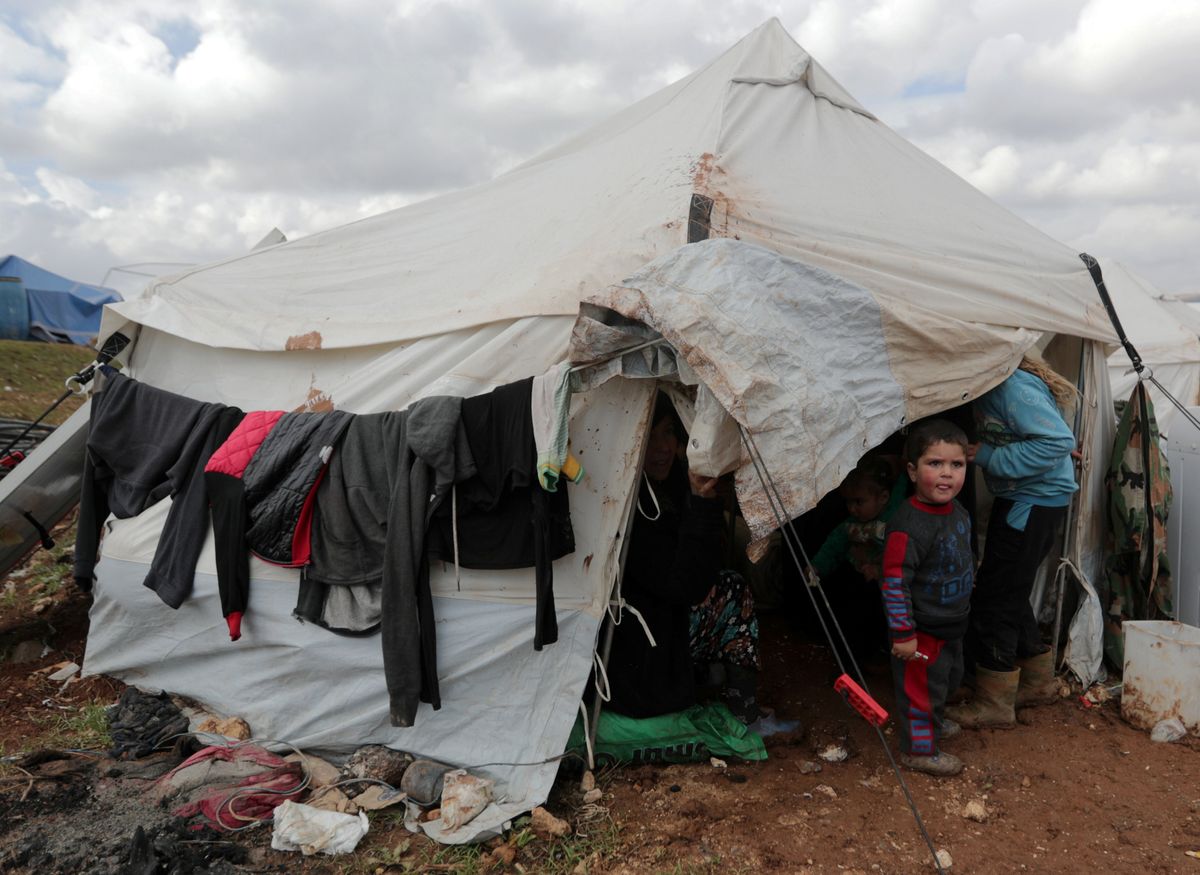The final chapter of Syria's bloody civil war is playing out in Idlib province in the country's northwest. A weeks-long offensive by forces loyal to Bashar al-Assad to reclaim Idlib has forced almost a million civilians to flee the onslaught, catalyzing "a horrifying new level" of torment in the almost decade-long war, the United Nations says. Meanwhile, Turkey suffered heavy losses yesterday in an airstrike in that region, prompting fears of a serious escalation. We unpack the latest developments in Syria here.
Turkey's recent losses: An airstrike in northwestern Syria yesterday killed at least 33 Turkish troops. It is unclear whether the strike was carried out by Syrian forces or by the Russian jets that support them. (Reminder: Russia is the Syrian government's main ally in the conflict, while Turkey backs some rebel groups in northwest Syria and has also sent its own troops across the border to deter the Syrian government's advance.) For a detailed look at the implications of yesterday's flare-up, see here.
Why Idlib? Whoever controls the province has access to a crucial highway linking the capital, Damascus, to Aleppo, Syria's most populous city. At the moment, it's the last major area controlled by rebel groups but back in December, Syrian government forces, backed by Russian airpower, began conducting an aggressive aerial bombardment to recapture it. After pro-government forces recently gained critical ground around Aleppo province, Assad declared the advance a "prelude to complete victory."
The humanitarian crisis: A UN official recently called the situation in northern Syria "the biggest humanitarian horror story of the 21st century." Almost one million civilians – mostly women and children – have been displaced since the Syrian government's offensive began in December, making it the largest exodus in a single period in a conflict that's already displaced some 13 million people. Now, these refugees find themselves stuck between the advancing battlefront and the closed Turkish border. (Ankara has absorbed 3.7 million Syrian refugees and says it won't take anymore.) Many of those who fled are languishing in ramshackle camps in freezing conditions with scarce food, heat and medical supplies. There are reports of infants dying from hypothermia in recent weeks, as well as children suffocating as parents tried to warm makeshift tents.
Prospects for a ceasefire? Turkish President Recep Tayyip Erdogan and his Russian counterpart Vladimir Putin spoke Friday in the hopes of reducing tensions in the region, and vowed to enhance coordination between their armies in northern Syria, according to a statement released by the Kremlin. Meanwhile, Ankara called an emergency NATO ambassadors' summit, pulling NATO allies into the increasingly unstable situation. But there seems little prospect of brokering a long-term solution anytime soon.






